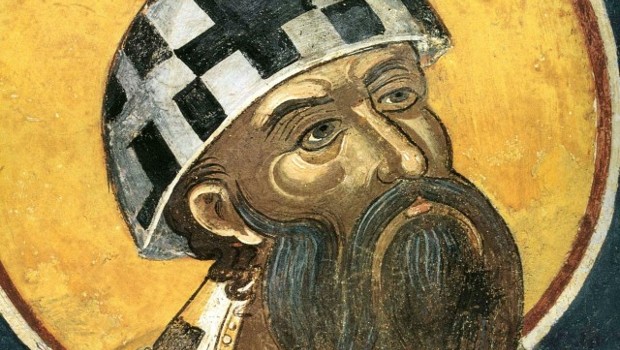
St. Cyril of Alexandria (376?-444)
Quote:
Cyril’s theme: “Only if it is one and the same Christ who is consubstantial with the Father and with men can he save us, for the meeting ground between God and man is the flesh of Christ. Only if this is God’s own flesh can man come into contact with Christ’s divinity through his humanity.” (New Catholic Encyclopedia).
Cyril, archbishop of Alexandria, Egypt, showed impulsive, often violent, actions. He pillaged and closed the churches of the Novatian heretics (who required those who denied the faith to be re-baptized), participated in the deposing of St. John Chrysostom (September 13) and confiscated Jewish property, expelling the Jews from Alexandria in retaliation for their attacks on Christians.
He fought against the heresy of Nestorius, who taught that in Christ there were two persons, one human and one divine. For Nestorius, Mary is not the mother of God (“God-bearer”) but only of the man Christ(“Christ-bearer”), whose humanity was only a temple of God. Presiding as the pope’s representative at the Council of Ephesus (431), Cyril condemned Nestorianism.
In the confusion that followed, Cyril was deposed and imprisoned for three months, after which he was welcomed back to Alexandria as a second Athanasius (the champion against Arianism). On his deathbed, despite pressure, he refused to condemn the teacher of Nestorius.
Reflection:
Lives of the saints are valuable not only for the virtue they reveal but also for the less admirable qualities that also appear. Holiness is a gift of God to us as human beings. Life is a process. We respond to God’s gift, but sometimes with a lot of zigzagging. If Cyril had been more patient and diplomatic, the Nestorian Church might not have risen and maintained power so long. But even saints must grow out of immaturity, narrowness and selfishness. It is because they—and we—do grow, that we are truly saints, persons who live the life of God.


No Comments